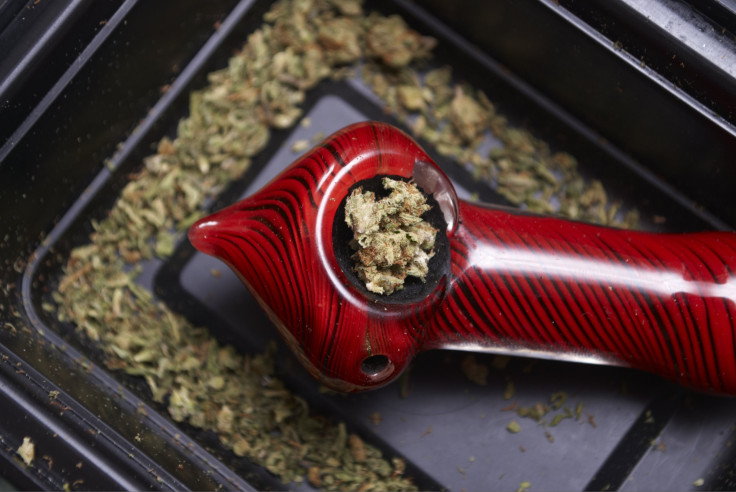Risk Of Psychotic Episodes Higher In People Who Smoke High-Potency ‘Skunk’ Weed; Milder Strains Are OK

It’s called “skunk” due to its strong smell, and it has a tendency to be extremely potent. Now, a new study out of the King’s College London and published in The Lancet Psychiatry has discovered that frequent use of this strain of weed can increase your risk of experiencing a psychotic episode.
Skunk cannabis is a hybrid of the two main types of weed, sativa and indica, which are more energizing (providing a “daytime high”) and calming (offering more of a “nighttime high”), respectively. The mix results in a unique high that’s quite different from other types of weed, due to the conflicting natures of sativa and indica. In addition, skunk cannabis contains two to three times more THC (tetrahydrocannabinol) than ordinary marijuana. It’s this high level of THC that has made scientists question its potential detrimental psychological impact.
The researchers of the new study examined 410 patients in South London who had been in the hospital for a first-episode psychotic incident, meaning they had never before experienced psychosis. They compared this data to that of 370 control individuals in the same area, and found that people who used high-potency weed were three times more likely to be diagnosed with a psychotic disorder when compared to people who had never smoked. Daily users were five times more likely. They also estimated that 24 percent of all new cases of psychosis are in some way associated with high-potency marijuana.
But it seems like regular, low-potency marijuana doesn’t have the same effect — a finding that conflicts with other studies on the subject, which have found that frequent use of regular marijuana might contribute to an increased risk of mental illness. The researchers noted that people who used low-potency weed had no increased risk of a psychotic episode or disorder whatsoever. So the link to psychosis has something to do with a particular element of high-potency weed, most likely the higher levels of THC and lower levels of cannabidiol or CBD. Because recent research has actually shown CBD to have anti-psychotic effects, it would make sense that less CBD would mean fewer anti-psychotic factors to balance out the psychosis-inducing THC.
The Washington Post reports that the average THC percentage in federal seizures of weed has risen significantly in recent years, meaning our weed is actually getting more and more potent. Does this mean that the prevalence of psychosis in the U.S. will increase as laws relax on prohibition, and more people have access to stronger marijuana? There’s no way to answer that question until more research is carried through, especially since the correlation found in this study doesn’t necessarily lead to causation.
“The authors clearly point out that they cannot be sure the association seen in their study is causal,” Suzi Gage, a cannabis and psychosis researcher at the University of Bristol, wrote for The Guardian. “The people who choose to smoke cannabis might be different in a variety of other ways, which could be the cause of the increase in psychosis risk. Although you can control for these in analyses, you can never be sure you’ve adequately adjusted for them.”
The same goes for all the accumulating research out there about the general link between marijuana and psychosis. Studies have shown that frequent use of weed might lead to an increased risk of lasting psychosis, schizophrenia, and other mental health problems. Again, correlation doesn’t equal causation in this case. Perhaps weed does have this effect on people, or perhaps the people more likely to smoke large amounts of weed are also more vulnerable to developing mental illness. For others, weed has been shown to actually reduce anxiety, and have healing, therapeutic properties for both the body and mind.
The authors conclude that when physicians ask patients about their vices in mental health evaluations, the question shouldn't be whether they smoke or not, but rather what kind of weed they smoke and how much.
“As with smoking tobacco and drinking alcohol you need a clear public message,” lead author Dr. Marta Di Forti said in a press release. “When a [general practitioner] or psychiatrist asks if a patient uses cannabis, it’s not helpful; it’s like asking whether someone drinks. As with alcohol, the relevant questions are how often and what type of cannabis. This gives more information about whether the user is at risk of mental health problems; awareness needs to increase for this to happen.”
Source: Di Forti M, Marconi A, Carra E, et al. Proportion of patients in south London with first-episode psychosis attributable to use of high potency cannabis: a case-control study. The Lancet Psychiatry. 2015.



























